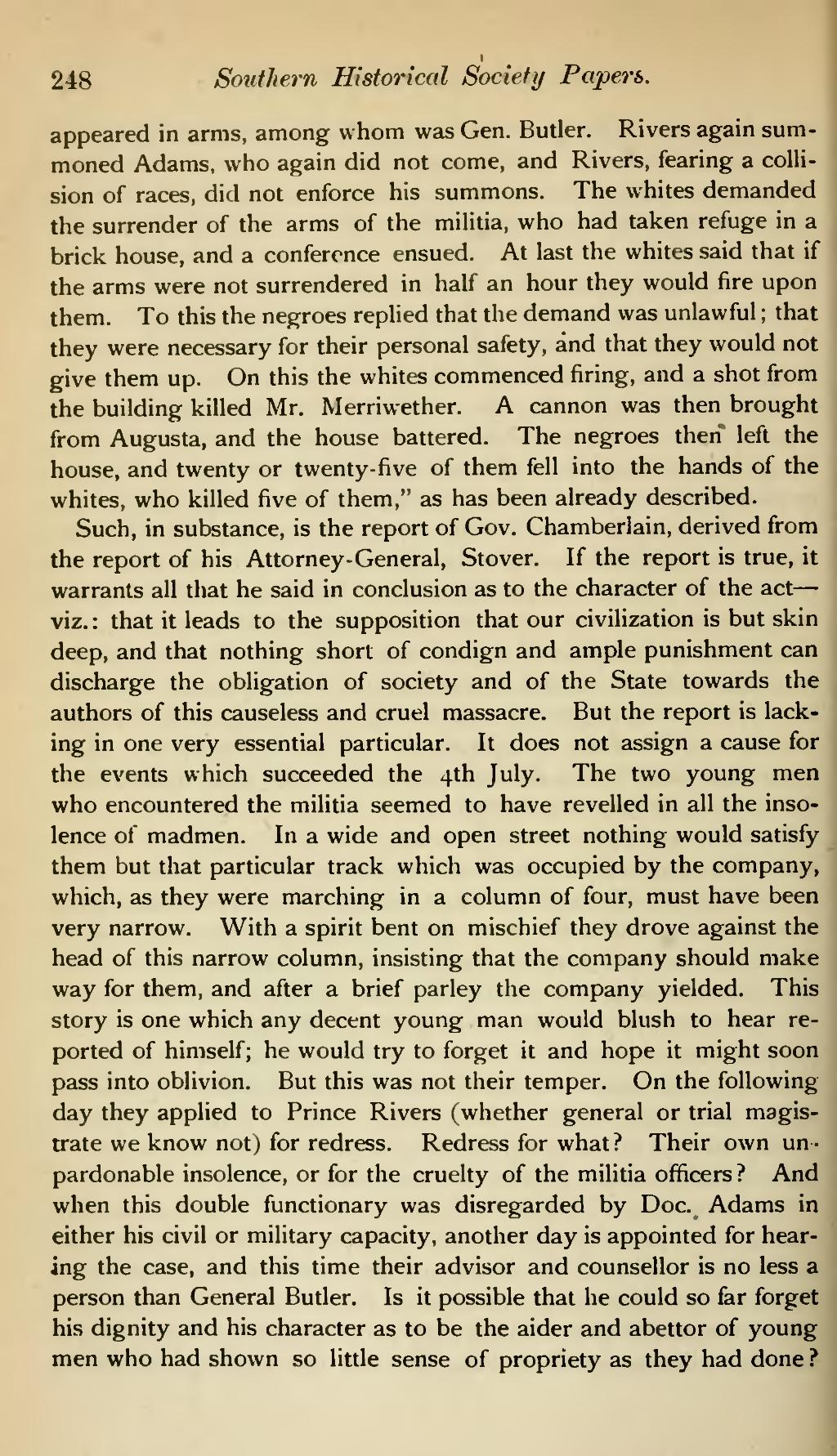248 Southern Historical Society Papers.
appeared in arms, among whom was Gen. Butler. Rivers again sum- moned Adams, who again did not come, and Rivers, fearing a colli- sion of races, did not enforce his summons. The whites demanded the surrender of the arms of the militia, who had taken refuge in a brick house, and a conference ensued. At last the whites said that if the arms were not surrendered in half an hour they would fire upon them. To this the negroes replied that the demand was unlawful ; that they were necessary for their personal safety, and that they would not give them up. On this the whites commenced firing, and a shot from the building killed Mr. Merriwether. A cannon was then brought from Augusta, and the house battered. The negroes then left the house, and twenty or twenty-five of them fell into the hands of the whites, who killed five of them," as has been already described.
Such, in substance, is the report of Gov. Chamberlain, derived from the report of his Attorney-General, Stover. If the report is true, it warrants all that he said in conclusion as to the character of the act — viz. : that it leads to the supposition that our civilization is but skin deep, and that nothing short of condign and ample punishment can discharge the obligation of society and of the State towards the authors of this causeless and cruel massacre. But the report is lack- ing in one very essential particular. It does not assign a cause for the events which succeeded the 4th July. The two young men who encountered the militia seemed to have revelled in all the inso- lence of madmen. In a wide and open street nothing would satisfy them but that particular track which was occupied by the company, which, as they were marching in a column of four, must have been very narrow. With a spirit bent on mischief they drove against the head of this narrow column, insisting that the company should make way for them, and after a brief parley the company yielded. This story is one which any decent young man would blush to hear re- ported of himself; he would try to forget it and hope it might soon pass into oblivion. But this was not their temper. On the following day they applied to Prince Rivers (whether general or trial magis- trate we know not) for redress. Redress for what? Their own un- pardonable insolence, or for the cruelty of the militia officers? And when this double functionary was disregarded by Doc. Adams in either his civil or military capacity, another day is appointed for hear- ing the case, and this time their advisor and counsellor is no less a person than General Butler. Is it possible that he could so far forget his dignity and his character as to be the aider and abettor of young men who had shown so little sense of propriety as they had done ?
